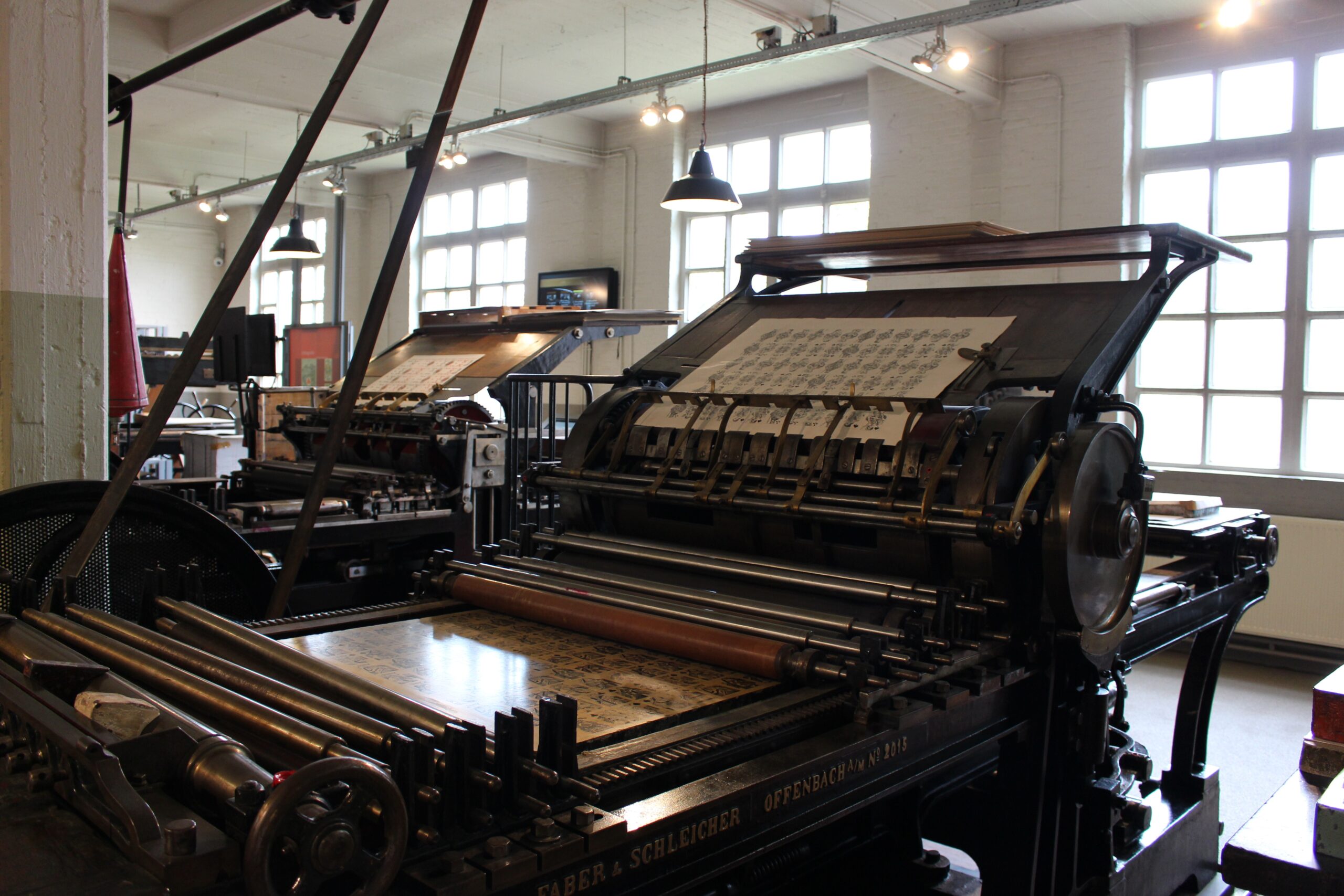Throughout human history, the flow of information has been ever-changing. In the early church in the first century, the Apostles used hand-written letters that were read corporately in the church to deliver messages even when they were in distant lands. Distributed via voyages over stormy seas and journeying through treacherous terrains, those scratched parchments stitched the new believers together in the grace of God received. This means of spreading the message continued until the revolution of the printing press in the 15th century.
The effect the printing press had was exponentially greater than any vehicle used beforehand. The innovation, pioneered chiefly by Johannes Gutenberg in the 15th Century, radically disrupted the traditional vision of information exchange and how the ‘Word’ was experienced across societies. The Gutenberg Bible printed in 1456 was the first book printed in the Western world. More than an astonishing technological marvel, it represented a journey from sacred seclusion to communal emancipation. This Bible not only heralded enormous consequences for religion but for everyone: suddenly, God’s Word was instantly obtainable by all, not just viewed by a privileged few. The monopoly over spiritual information was being democratized.
There’s a famous quote attributed to German religious reformer Martin Luther that sums up the role of the printing press in the Protestant Reformation: “Printing is the ultimate gift of God and the greatest one.” Martin Luther quickly became the world’s first best-selling author. His work during the Reformation spread quickly and Luther’s translation of the New Testament into German sold 5,000 copies in just two weeks. From 1518 to 1525, Luther’s writings accounted for a third of all books sold in Germany and his German Bible went through more than 430 editions.
With the word of God quite literally in their hands, people’s approach towards the absorption of the Bible transformed dramatically. Scriptures were no longer a hushed chant inside an exclusive enclave but became annotated hand copies within the private confines of one’s home. Handwritten testimonies of devotion transformed into personalized, printed tributes to faith.
The gospel became more widely available, more people took part in spiritual interpretations, and the democratisation of the distribution of God’s message changed the beat of society’s spiritual heart. These profound waves that changed the game also permeated every kind of communication that humans would later develop.
By the mid-17th century, the first printing presses arrived in colonial America in response to the increasing demand for Bibles and other religious literature. The operation of a press became synonymous with the enterprise of printing, and lent its name to a new medium of expression and communication, “the press”.
The yield of the printing press was far more than just creating more books – replicable books – it assembled a bridge towards enlightenment. The embrace of Gutenberg’s invention went beyond merely influencing the dynamics of the Church and its teachings: it overturned the entire social order.
With unprecedented access to written works, including the critical Bible, a thirst for knowledge and individual interpretation emerged rapidly among the masses. Literacy rates skyrocketed, civil conversations flourished, and cultural revolutions sprouted across multiple lands. Suddenly, the world began engaging in debates and scholarly discourses originally sequestered to segregated sects and institutions.
Peering deeper, the printing press became the bridge to modern democracy itself. Bringing a magnitude of access to reading material led to the distribution of power away from ecclesiastical odds & tops across Europe, setting up the stage for political landscapes such as republic jurisdictions and representational systems.
While its origins were firmly embedded in the passion to make God’s Word available to all, the ripple effect of the printing press created waves that forever influenced how ideas permeate through society.
Schematically, those ingeniously poised presses of yester-century sowed seeds for our present digital highways, full of lightning-paced tweets or interactive podcasts – a timeless testament to humanity’s indefatigable thirst for wisdom and connection.
The printing press was far greater a revolution than it was a machine. It was an epoch that started by publishing an accessible Bible, leading to a Genesis where knowledge became a glowing rain, giving rise to the world we resonate in today.
